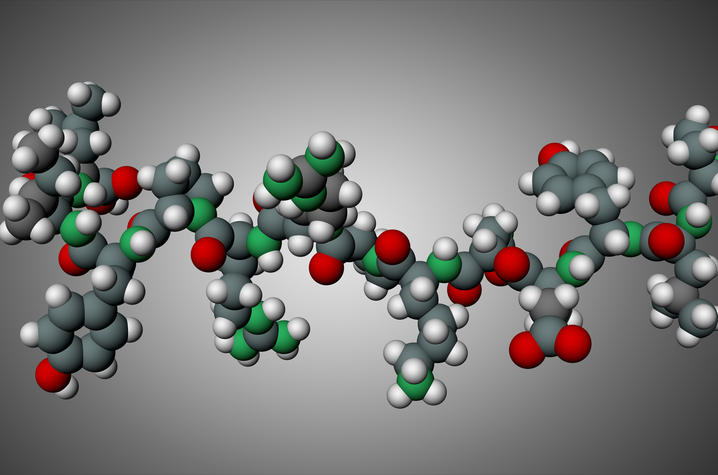Markey research team discovers gut hormone’s role in fatty liver disease

LEXINGTON, Ky. (April 28, 2025) – University of Kentucky Markey Cancer Center researchers have identified a mechanism by which a gut hormone contributes to fatty liver disease, offering potential new targets for treating the common condition.
The study, published in Cell Death & Disease on April 27, examined both human liver samples and mouse models to show how neurotensin, a gut hormone released after eating fatty foods, plays a direct role in the development of metabolic dysfunction-associated steatotic liver disease (MASLD), commonly known as fatty liver disease.
The findings suggest that targeting the neurotensin signaling pathway could provide a new strategy for developing treatments for the disease, which has limited therapeutic options. MASLD affects about 25% of adults worldwide and is characterized by excess fat buildup in the liver and is strongly associated with obesity, diabetes and other metabolic disorders.
“The findings could lead to new treatment approaches for patients with fatty liver disease,” said UK Markey Cancer Center Director B. Mark Evers, M.D., who led the study. “By understanding how neurotensin affects liver metabolism, we may be able to develop targeted therapies that could help millions of people who currently have limited options for managing this condition.”
Neurotensin is a hormone produced primarily in the small intestine and central nervous system that helps regulate digestion, appetite and energy balance. The study showed that the hormone affects the liver by increasing fat uptake and reducing the liver’s ability to burn fat. Specifically, neurotensin works by increasing expression of CD36, a protein that transports fatty acids into liver cells, while decreasing the activity of PGC1α, a protein that helps the liver mitochondria burn fat.
The research team, with Markey researcher Moumita Banerjee, Ph.D., as first author, found that people with fatty liver disease had much higher levels of neurotensin signaling in their liver tissue samples. The mouse studies showed that mice lacking the neurotensin gene had far less fat buildup in their livers when fed high-fat diets compared to normal mice.
The study’s findings also have important implications for cancer research: Fatty liver disease can progress to more severe forms that increase liver cancer risk, and understanding the neurotensin pathway could provide insight into how metabolic dysfunction contributes to cancer development.
Research reported in this publication was supported by the National Institute of Diabetes and Digestive and Kidney Diseases of the National Institutes of Health under Award Numbers R01DK112034 and R01DK048498, the National Institute of General Medical Sciences of the National Institutes of Health under Award Number P20GM121327, and the National Cancer Institute of the National Institutes of Health under Award Numbers R01CA133429 and P30CA177558. The content is solely the responsibility of the authors and does not necessarily represent the official views of the National Institutes of Health.
UK HealthCare is the hospitals and clinics of the University of Kentucky. But it is so much more. It is more than 10,000 dedicated health care professionals committed to providing advanced subspecialty care for the most critically injured and ill patients from the Commonwealth and beyond. It also is the home of the state’s only National Cancer Institute (NCI)-designated Comprehensive Cancer Center, a Level IV Neonatal Intensive Care Unit that cares for the tiniest and sickest newborns and the region’s only Level 1 trauma center.
As an academic research institution, we are continuously pursuing the next generation of cures, treatments, protocols and policies. Our discoveries have the potential to change what’s medically possible within our lifetimes. Our educators and thought leaders are transforming the health care landscape as our six health professions colleges teach the next generation of doctors, nurses, pharmacists and other health care professionals, spreading the highest standards of care. UK HealthCare is the power of advanced medicine committed to creating a healthier Kentucky, now and for generations to come.




